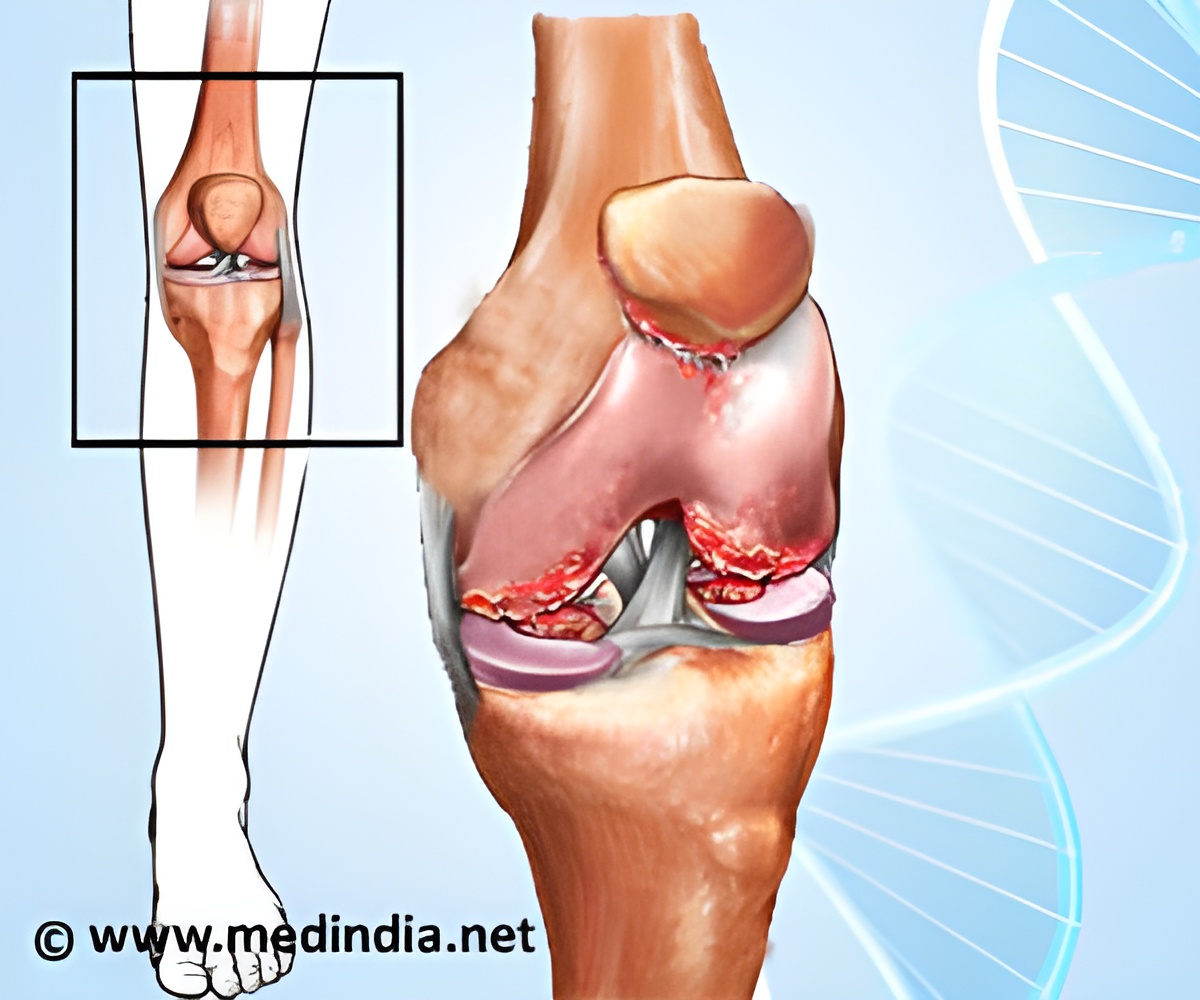
Preventative measures and early treatments are considered to be the most effective way of managing OA, but to date there has been no way of identifying the disease early on.
"These results indicate that for the first time we will be able to predict the risk of severe osteoarthritis, before the disease starts to significantly impact a person's life, allowing us to take preventative action early on. Through the early identification of osteoarthritis we can decrease both the impact of the disease on individuals and the major socio-economic burden severe disease poses," said Dr Christian Beyer, lead author from University of Erlangen-Nuremberg, Germany.
OA is a common musculoskeletal disorder affecting 10% of the world's population. It is characterised by pain and stiffness in the joints and is one of the top ten most disabling diseases in developed countries, posing a major cause of knee or hip replacements. Disability from the disease has a great impact on individuals, healthcare systems and society, contributing to loss of productivity and inability to work. The average total annual cost of OA per patient is between €1,330 and €10,452 across Europe.With risk factors including advancing age and obesity, the burden of the disease is expected to grow.
This study screened existing serum samples of people with OA, through which they identified three potential miRNA markers. 816 patients were followed over 15 years and measured for the presence of the 374 miRNAs and the occurrence of OA, using joint replacement (known as arthroplasty), as a definitive outcome of severe OA in the knee or hip. Of the 816 patients, 67 patients had one or more total joint replacements for severe knee or hip OA. The results of serum analysis showed a correlation between severe knee or hip OA and three miRNA molecules known as let-7e, miR-454 and miR-885-5p. These results indicate those miRNAs could be used as biomarkers to predict severe OA.
This is the first study to identify differentially expressed miRNAs in osteoarthritis patients necessitating arthroplasty, in a large population-based cohort using the well-defined Bruneck cohort.
Advertisement














